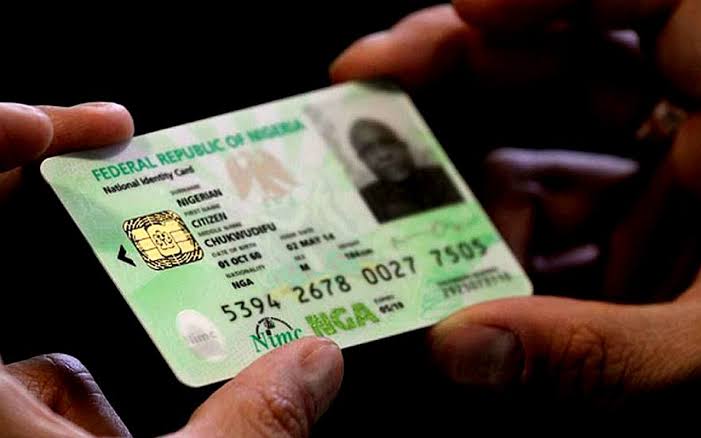The Nigerian Consumer Credit Corporation (CREDICORP) has unveiled an ambitious plan to revolutionize the country’s credit system by linking citizens’ credit scores to their National Identification Number (NIN). Announced by CREDICORP’s Managing Director and Chief Executive Officer, Uzoma Nwagba, during a press briefing in Abuja, this initiative aims to establish a centralized credit bureau that enhances transparency, accountability, and financial inclusion. By integrating credit profiles with the NIN, the system will create a unified database to track creditworthiness across Nigeria’s diverse financial landscape.
The proposed credit bureau will mandate all lenders, including commercial banks, microfinance institutions, and FinTech companies, to report loan repayments to a centralized platform. This will ensure that every Nigerian’s credit activities are accurately documented, creating a reliable credit score tied to their NIN. Unlike traditional systems where credit histories may be fragmented across institutions, this approach will provide a holistic view of an individual’s financial behavior, enabling fairer lending decisions.
CREDICORP’s initiative is designed to address Nigeria’s historically low credit penetration, which currently stands at less than 10% of the population. By linking credit scores to NINs, the corporation seeks to expand access to consumer credit, particularly for underserved groups such as low-income earners and young professionals. The system will also facilitate better risk assessment for lenders, reducing default rates and fostering a culture of responsible borrowing.
To enforce credit discipline, CREDICORP plans to introduce structured consequences for loan defaulters. Individuals who fail to repay loans may face restrictions on renewing essential documents like passports or driver’s licenses, as well as challenges in securing rentals or other services requiring credit checks. Nwagba emphasized that these measures are not punitive but aim to promote accountability while protecting lenders and borrowers alike.
The initiative aligns with three core objectives outlined by CREDICORP: improving Nigerians’ quality of life, reducing corruption, and boosting local industries. By providing access to affordable credit, the corporation aims to alleviate financial pressures that often lead to corrupt practices, such as bribery for survival. Additionally, CREDICORP plans to direct consumer credit toward locally manufactured goods, stimulating domestic production and reducing reliance on imports.
A flagship component of this plan is the YouthCred scheme, which targets 400,000 young Nigerians, starting with members of the National Youth Service Corps (NYSC). This program will provide access to consumer credit for essential needs, such as education, housing, or entrepreneurship, fostering financial inclusion among the youth. CREDICORP is collaborating with financial institutions to ensure the scheme’s success, with pilot programs already in development.
The scale of Nigeria’s credit needs is immense, with CREDICORP estimating a requirement of N183 trillion to build a robust consumer credit ecosystem. This figure underscores the need for partnerships with banks, FinTechs, and international organizations to mobilize resources. The centralized credit bureau will serve as the backbone of this ecosystem, providing the infrastructure needed to scale credit access nationwide.
CREDICORP’s plan also addresses data privacy and security concerns, given the sensitive nature of linking financial records to NINs. The corporation has committed to working with the National Identity Management Commission (NIMC) to ensure compliance with data protection regulations. Robust cybersecurity measures will be implemented to safeguard citizens’ information, building public trust in the system.
The initiative has drawn comparisons to credit systems in advanced economies, where centralized bureaus like Equifax or TransUnion play a critical role in financial markets. However, Nigeria’s approach is tailored to its unique context, accounting for challenges such as limited digital infrastructure and low financial literacy. CREDICORP plans to launch public awareness campaigns to educate citizens on the benefits and responsibilities of the new credit system.
Stakeholders in the financial sector have expressed cautious optimism about the plan. Industry experts note that a centralized credit bureau could reduce lending risks and lower interest rates over time, making credit more affordable. However, they stress the importance of addressing implementation challenges, such as ensuring accurate NIN registration and preventing bureaucratic delays.
The timeline for rolling out the centralized credit bureau remains ambitious, with CREDICORP aiming to establish key infrastructure within the next two years. Pilot programs, including the YouthCred scheme, are expected to launch in early 2026, providing valuable data to refine the system. Nwagba highlighted the government’s commitment to the project, noting support from President Bola Tinubu’s administration.
This initiative builds on recent efforts to strengthen Nigeria’s financial system, including the expansion of digital banking and mobile money services. By integrating credit scores with NINs, CREDICORP aims to create a seamless link between identity verification and financial services, reducing fraud and improving efficiency. The corporation also plans to leverage technology, such as artificial intelligence, to analyze credit data and enhance decision-making.




